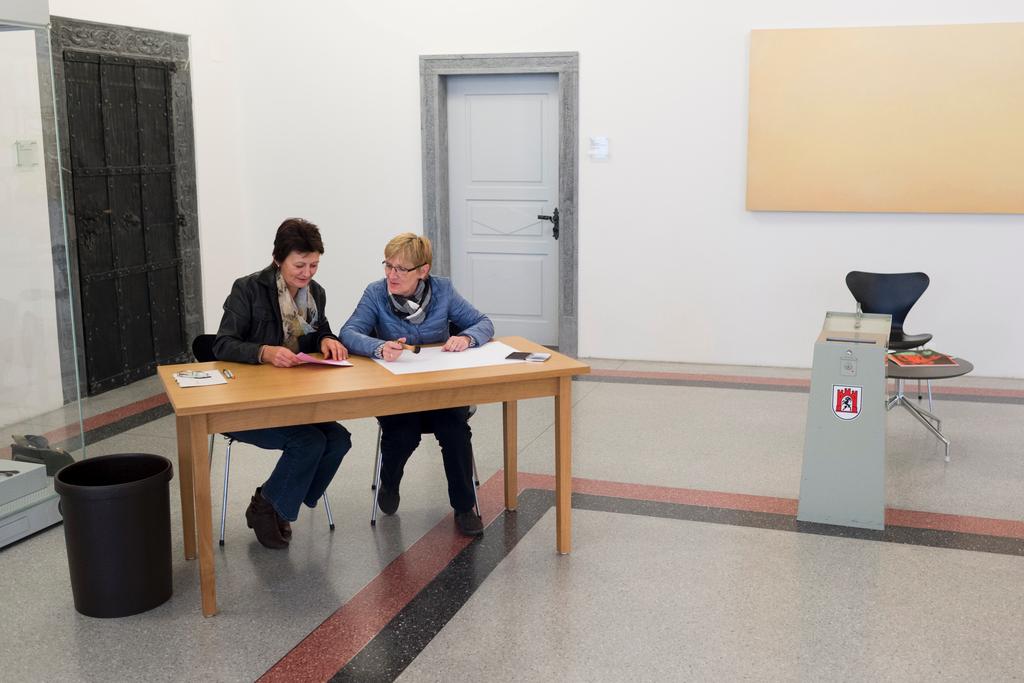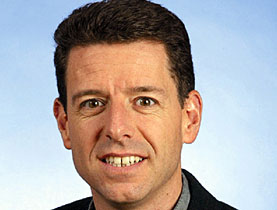
Abstention doesn’t necessarily equate with disinterest

For decades, less than half the Swiss population with the right to vote has bothered to participate in parliamentary elections, but this does not mean the Swiss are not interested in politics, according to a leading expert.
Neighbouring Germany registered its lowest participation rate of 70.8% during the 2009 parliamentary elections, while in France, observers were dismayed when turnout in the 2012 legislative elections dropped below 60%.
In Switzerland, where you have to go back 40 years to find an election in which more than 50% of the population voted, such figures are the stuff of dreams.
But Pascal Sciarini, a political science professor at the University of Geneva, says when all votes held in Switzerland are included, only a small fraction of citizens never vote at all.
swissinfo.ch: How do you explain the fact that turnout for national elections in Switzerland is a lot lower than most European countries?
Pascal Sciarini: In most other countries, voting in elections represents the only means to express a political opinion. They vote a lot less than in Switzerland so more people participate.
In Switzerland, the combination of representative democracy (the election of a parliament) and direct democracy (votes on referendums and initiatives) means we have a lot more ballots. It is possible to vote not only in elections but also on individual issues. This combination has contributed to a reduced turnout. We vote very often and it is not necessary to do it each time.
We have just completed a study that shows that a little less than 10% of citizens never vote at all, and that 10% vote systematically. As a consequence, the large majority of people who have the right to vote do so in a selective manner. They vote between one and nine times out of ten votes.

If we look at only one vote or election, the participation in Switzerland is low. But if we consider it from a cumulative point of view over several successive votes, we get a very different picture of the situation. We see that the people who systematically stay away from the polling stations are a very small minority.
swissinfo.ch: Can the low participation rate also be explained by the fact that elections don’t have a major influence over the make-up of the government?
P.S.: It is the second major factor. In a parliamentary system, the majority will decide the composition of the government. In Switzerland that is not the case because, all the major parties are represented in the cabinet.
This remains more or less the same for each four-year term.
Sure, for several years now the seventh seat in the government has vacillated and sometimes changes hands. This of course makes for a bit of political game play, but we are only talking about one seat and not a modification of the political colours of the government.
It’s not a sufficient factor to boost turnout in the election.
swissinfo.ch: Does the proportional system, which provides for representation of all the parties, remove some of the attraction of elections?
P.S.: It can play a role. However, other countries with proportional voting systems have a much higher participation rate than in Switzerland because there is a link between the election result and the composition of the government.
It is also worth noting that a majority system can also lead to higher abstention rates.
Some voters can be dissuaded from voting if they feel that the outcome is decided in advance because of the dominant position of one party.
swissinfo.ch: The Swiss political system is pretty much the same today as it was 100 years ago, so is abstention also due to a change in mentality?
P.S.: If we takes a long-term historical perspective, it is clear that participation rates declined steadily until the 1970ies for votes, and until the 1990ies for elections before stabilising.
Therefore, this spectacular decline in civic responsibility spans the generations. It goes hand in hand with the rise of individualism.
This has some positive aspects in terms of the emancipation of the individual against the state, but it also has negative effects in terms of collective activism and political participation.
swissinfo.ch: Why do you think that the various campaigns designed to encourage people to vote have met mixed success?
P.S.: They are useful but you have to distinguish between efforts at short-term mobilisation and more fundamental measures over the long term.
We know that there are different effects in the short term, for example a strong referendum campaign leads to higher participation. The people realise that if there is a lot of talk during a campaign, then it is probably an important issue and it’s worthwhile to go and vote.
These specific actions can have a marginal effect but they will not address structural absenteeism. To do this we have to work against the tide, particularly with young people.
But citizenship awareness or education courses – whatever you want to call it – suffer a bit from federalism. The organisation is different according to the cantons and the schools. Even within each school, what we once called civic education depends on the willingness of the teaching faculty.
The other major lever for reinforcing the civic awareness of young people is within the family.
We know very well that socialisation within a family plays a major role. It is however difficult for the state to substitute the family. So it is only through substantially reinforcing civic education that it is possible to act.
Translated from French by Sophie Douez

In compliance with the JTI standards
More: SWI swissinfo.ch certified by the Journalism Trust Initiative


























You can find an overview of ongoing debates with our journalists here . Please join us!
If you want to start a conversation about a topic raised in this article or want to report factual errors, email us at english@swissinfo.ch.